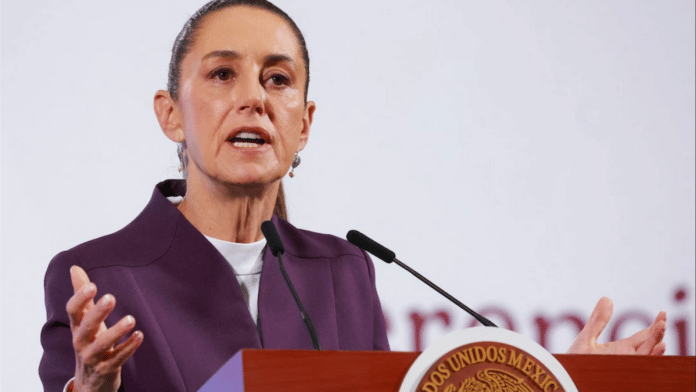Mexico City: Mexico is seeking the repatriation of 14 nationals being held at the United States’ detention center known as “Alligator Alcatraz”, President Claudia Sheinbaum said on Tuesday.
“All arrangements are being made to ensure they are repatriated immediately,” Sheinbaum told a daily press conference.
The facility, about 37 miles (60 km) from Miami, sits in a subtropical wetland teeming with alligators, crocodiles and pythons, fearsome imagery the White House has leveraged to show its determination to purge migrants it says were wrongly allowed to stay in the United States under former President Joe Biden.
Since President Donald Trump took office on Jan. 20, a total of 73,533 people have been returned to Mexico, mostly by air, including 67,008 Mexican nationals, Sheinbaum said in another daily briefing this month.
Mexican father Martin Gonzalez told local radio station W that his sons, Carlos and Alejandro, were now held in the detention center.
“It’s really bad. The facility is completely closed, not even sunlight gets in,” Gonzalez said. “The lights are on 24-7, so they don’t even know if it’s day or night.”
He said they were sent there after Carlos, 26, was stopped by a state trooper while driving, adding that he was visiting the U.S. as a tourist and had a valid visa.
The trooper asked for the car’s registration, which was missing. When his brother, Alejandro, arrived to provide the document, he too was detained, and both were sent to the facility, their father said.
“Obviously my sons are desperate to get out of this situation,” he said.
U.S. Department of Homeland Security spokesperson Tricia McLaughlin confirmed the brothers had been detained during a traffic stop on July 7, adding Carlos had not registered his vehicle with the state and accumulated 212 toll violations.
McLaughlin said Carlos was working illegally while on a tourist visa and Alejandro had overstayed his visa.
Mexico’s consul in Orlando, Juan Sabines, said in a video shared on Monday alongside the men’s father that the two were in “legal limbo,” because a lawyer appointed to their case did not have access to their file, and a judge had not been assigned.
This report is auto generated from the Reuters news service. ThePrint holds no responsibility for its content.
Also Read: No skills, no jobs, just stigma—What do Indian prisoners do after they get out?






